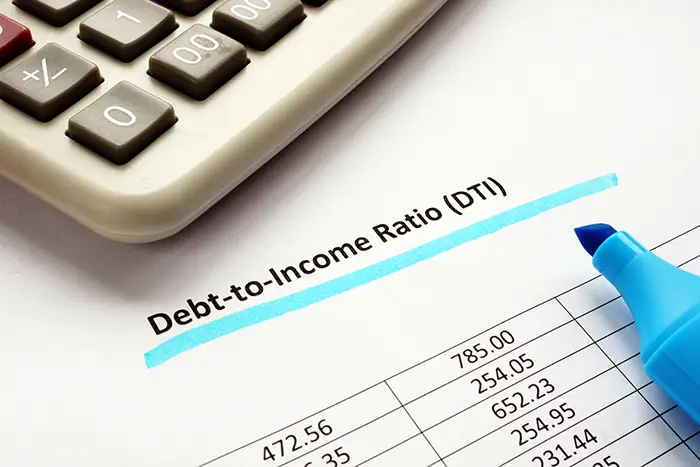What Are the Requirements for an FHA Loan?
Published on October 31, 2023 | 8 Minute read

Melanie
Ortiz Reyes
Content Specialist
If you're in the market for a home and considering an FHA loan, you're on the right track to making your homeownership dream a reality. FHA loans are insured by the Federal Housing Administration and they're renowned for their flexibility and accessibility, making them a popular choice for many first-time homebuyers. To qualify for an FHA loan, you must meet specific requirements, both as a borrower and for the property you intend to purchase. Here's a breakdown of the key requirements for an FHA loan:
The Basics
What is an FHA Loan?
An FHA Loan is a mortgage option designed to make homeownership more accessible. It's a great option, particularly for first-time buyers, due to its lower down payment requirements and more lenient credit score standards.
What Are the Benefits of an FHA Loan?
The key benefits of an FHA loan include a low down payment, competitive interest rates, and more lenient qualification criteria. This makes it an excellent choice for those who may not meet the stricter standards of conventional loans.

Borrower Requirements
Credit score is one of the primary factors that lenders consider when approving FHA loans. The FHA has relatively lenient credit score requirements, making it accessible to a broader range of borrowers. Here's what you need to know:
- Credit Score - To be eligible for an FHA loan, you generally need a minimum credit score of 580. However, borrowers with credit scores between 500 and 579 may still qualify, but they will typically be required to make a higher down payment.
FHA loans are also well-known for their low down payment requirements, making homeownership more attainable for many. Here's what you need to know about down payments:
- Minimum Downpayment - The minimum down payment requirement for an FHA loan is 3.5% of the purchase price. This is significantly lower than the down payment required for many conventional loans. FHA loans also allow borrowers to use gift funds for their down payment. This means that family members or other approved sources can provide the funds to cover your down payment.
While the down payment is an essential consideration, don't forget to budget for closing costs. These costs typically include fees for appraisal, title insurance, and other expenses associated with the loan and property purchase.
- Debt-to-Income Ratio (DTI) - This is a critical factor in loan approval. It measures your ability to manage your monthly debt payments in relation to your income. For FHA loans, your total monthly debt payments, including your future mortgage payment, should generally not exceed 43% of your gross monthly income. In some cases, lenders may accept a higher DTI if you have strong compensating factors, such as a higher credit score or substantial cash reserves.
Lenders also want to ensure that you have a stable employment and income history to demonstrate your ability to meet your mortgage obligations. To qualify, you typically need at least two years of steady employment or income history. This ensures that your financial situation is reliable and consistent. Keep in mind that FHA loans are designed for U.S. residents, so you must be a legal resident or U.S. citizen to qualify. Non-U.S. residents are generally not eligible for FHA loans.
Don't forget about mortgage insurance. FHA loans require borrowers to pay an upfront mortgage insurance premium (MIP) and an annual MIP. This insurance protects the lender in case you default on the loan. The upfront MIP can typically be rolled into your loan amount, while the annual MIP is paid on a monthly basis. The specific MIP rates may vary based on the terms of your loan.
Now that you have an understanding of what an FHA loan is and what it entails, let's explore the property requirements to make your dream home eligible for this type of financing.

Property Requirements for an FHA Loan
FHA loans not only have borrower requirements but also guidelines for the properties themselves. These requirements aim to ensure that the home is safe and habitable. Here are the property requirements you need to know:
- Property Type - FHA loans are available for various property types, including single-family homes, multi-unit properties (up to four units), condominiums, and manufactured homes. However, the property must be the borrower's primary residence.
- Appraisal - An FHA-approved appraiser will assess the property's value and condition to ensure it meets FHA standards. The appraisal aims to identify any safety or health hazards that might require repair before the loan is approved.
- Minimum Property Standards - The property must meet the FHA's Minimum Property Standards (MPS). These standards address various aspects of the property, such as its structural soundness, safety, and habitability. MPS requirements cover areas like the foundation, roof, electrical systems, plumbing, and more.
- Lead-Based Paint - If the home was built before 1978, it may contain lead-based paint. FHA loans require that homes with potential lead-based paint hazards meet specific lead safety requirements.
- Safety Hazards - The FHA appraiser will look for safety hazards, such as exposed wiring, missing handrails, or faulty stairs. These hazards may need to be addressed before loan approval.
- Roof Condition - The roof should be in good condition and estimated to last for at least two more years. Any issues with the roof may require repair or replacement.
- Property Drainage - Proper drainage is essential to prevent water from entering the property. The property should be graded to direct water away from the house, minimizing the risk of water damage.
- Utilities and Heating - The property must have working utilities, and heating systems should be in good working order. If necessary, repairs or replacements may be required.
Additional Property Requirements for Condos and Manufactured Homes
While the basic property requirements apply to various property types, there are some additional considerations for condominiums and manufactured homes:
- Condominiums - If you're purchasing a condominium with an FHA loan, it must be part of an FHA-approved condominium project. The project's eligibility status can be checked on the FHA's approved condominium list.
- Manufactured Homes - Manufactured homes must meet specific guidelines, including structural requirements and the HUD Code. The home must be affixed to a permanent foundation and meet local building codes.
Ensuring Your Property Meets Requirements
Now that you have a clear understanding of the property requirements for an FHA loan, you're well-equipped to ensure your potential home meets these criteria. Here are some proactive steps to take:
- Work With a Real Estate Agent - A real estate agent experienced in FHA transactions can guide you to properties that are likely to meet the FHA requirements. They can also help you navigate the entire homebuying process.
- Get Pre-Approved - Before you start house hunting, obtain pre-approval for an FHA loan. This process involves providing your financial information to a lender, who will assess your eligibility for an FHA loan. Knowing your budget from the outset can help you focus on properties within your price range and more likely to meet FHA requirements.
- Schedule an FHA Appraisal - Once you find a home you're interested in, schedule an FHA appraisal. The appraiser will assess the property's condition and check for any issues that must be addressed to meet FHA standards.
- Negotiate Repairs With Seller - If the appraisal identifies necessary repairs, you can negotiate with the seller to address these issues. In many cases, sellers are willing to make required repairs to ensure the sale proceeds.

Unlocking the Door to Your Home
FHA loans are a fantastic option for many homebuyers, thanks to their flexibility and accessibility. Understanding the property requirements for an FHA loan is crucial to ensure your potential home is eligible for this type of financing. By choosing a property that meets FHA guidelines and taking proactive steps during your homebuying journey, you can increase your chances of securing an FHA loan and finally stepping across the threshold of your new home.
Remember that working with professionals who are well-versed in FHA transactions, such as real estate agents and lenders, can provide invaluable guidance throughout the process. So, start your search confidently, and may your journey to homeownership be filled with excitement and success as you unlock the door to your FHA loan dream home.